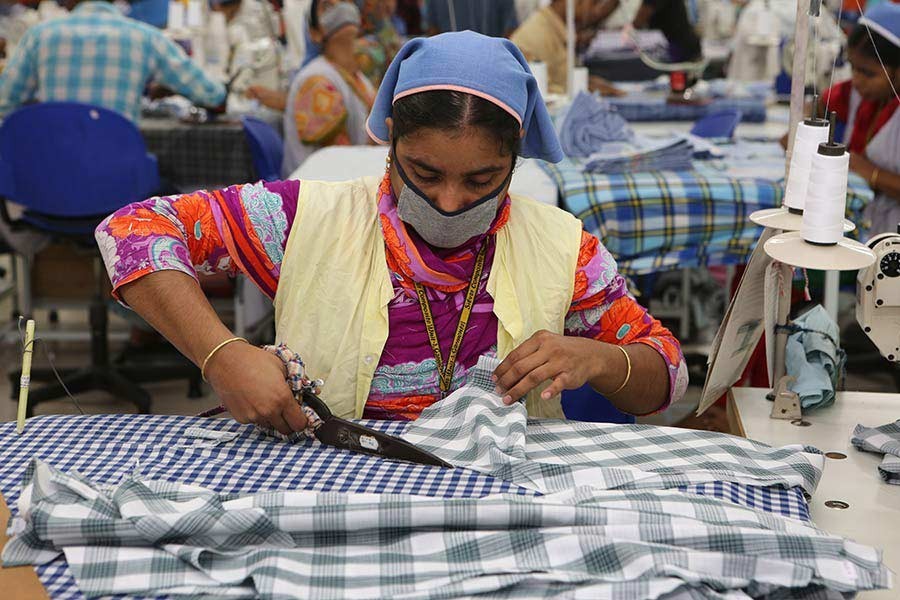Government's revenue authority assures consideration as Bangladesh's main export industry presses various budgetary demands, including exempting garment subcontracting units from VAT and resolving the HS code-related complications.
In a pre-budget consultation Thursday with BGMEA leaders Chairman of the National Board of Revenue (NBR) Abu Hena Md Rahmatul Muneem, however, said it would not be possible to simplify all the demanded export-import issues randomly as many could misuse such indiscriminate simplification, especially regarding no-tax regime in warehouse facility.
He was responding to the demands placed by the leaders of Bangladesh Garment Manufacturers and Exporters Association (BGMEA) at the meeting held in the city.
Earlier, BGMEA raised a number of demands for the next fiscal year, 2022-23, that also include simplification of export-import activities and retaining the existing pared-down source and corporate tax rates for next five years.
The existing source tax is 0.50 per cent while the corporate tax is 10 per cent and 12 per cent for green and other garment factories respectively.
The apparel association in its proposal says VAT (value-added tax) has been collected from a third of the country's apparel factories that are doing subcontracting.
Factories that are not getting sufficient work orders, do subcontracting to continue run of the business and meet their regular costs produce goods that are exported and earn foreign currency for the country.
"So it is not logical to collect VAT against subcontracting," the trade body says in its presentation.
Talking to the FE, BGMEA vice-president Shahidullah Azim said there are some 600-700 factories that are currently doing subcontracting and contribute to fetching about US$5.0-6.0 billion in export earnings.
"They also create employment for some 0.5 million to 0.6 million workers," he said, adding: "The government should waive VAT on subcontracting to help increase employment, investment and sustain competitiveness on the global market."
Speaking at the meeting, BGMEA President Faruque Hassan said after passing an unprecedented difficult time over the last two years due the covide-19 pandemic, the RMG industry of Bangladesh is recovering from the impacts but it is facing a number of problems, the second wave of the pandemic and its new variants.
"Increase in prices of yarn, chemicals and other raw materials in the global supply chain has pushed up production costs in garment manufacturing while freight fare and transportation costs have also gone up, making it challenging for the industry to retain its competitiveness on the global apparel market," he says.
He feels that timely policy support of the government is of utmost importance to keep the RMG industry competitive and steer it forward, especially at a time when opportunities are emerging for the sector with many challenges on the other side.
With government support, the apparel industry would be able to sustain its growth and contribute more to development of Bangladesh, Faruque Hassan said on an optimistic note about the industry's future.
Their other demands include exemption of VAT on the goods and services procured from local markets by the export-oriented RMG industries and withdrawal of the existing 10-per cent advance income tax on cash incentives given by government against export earnings.
The association also demands relaxation of the provision of mandatory inclusion of harmonised system of codes in bond licence in releasing imported raw materials under the bonded facilities.


